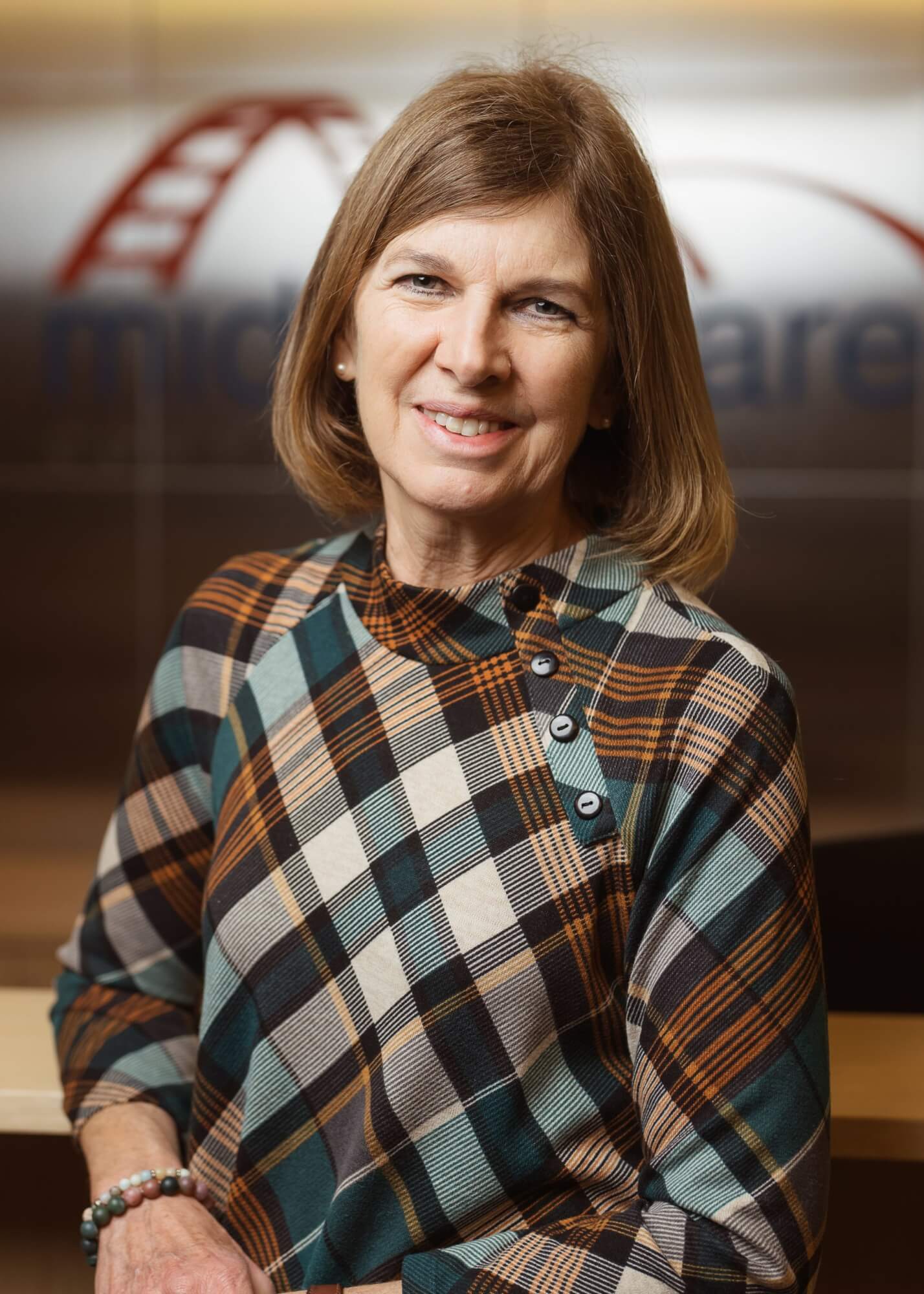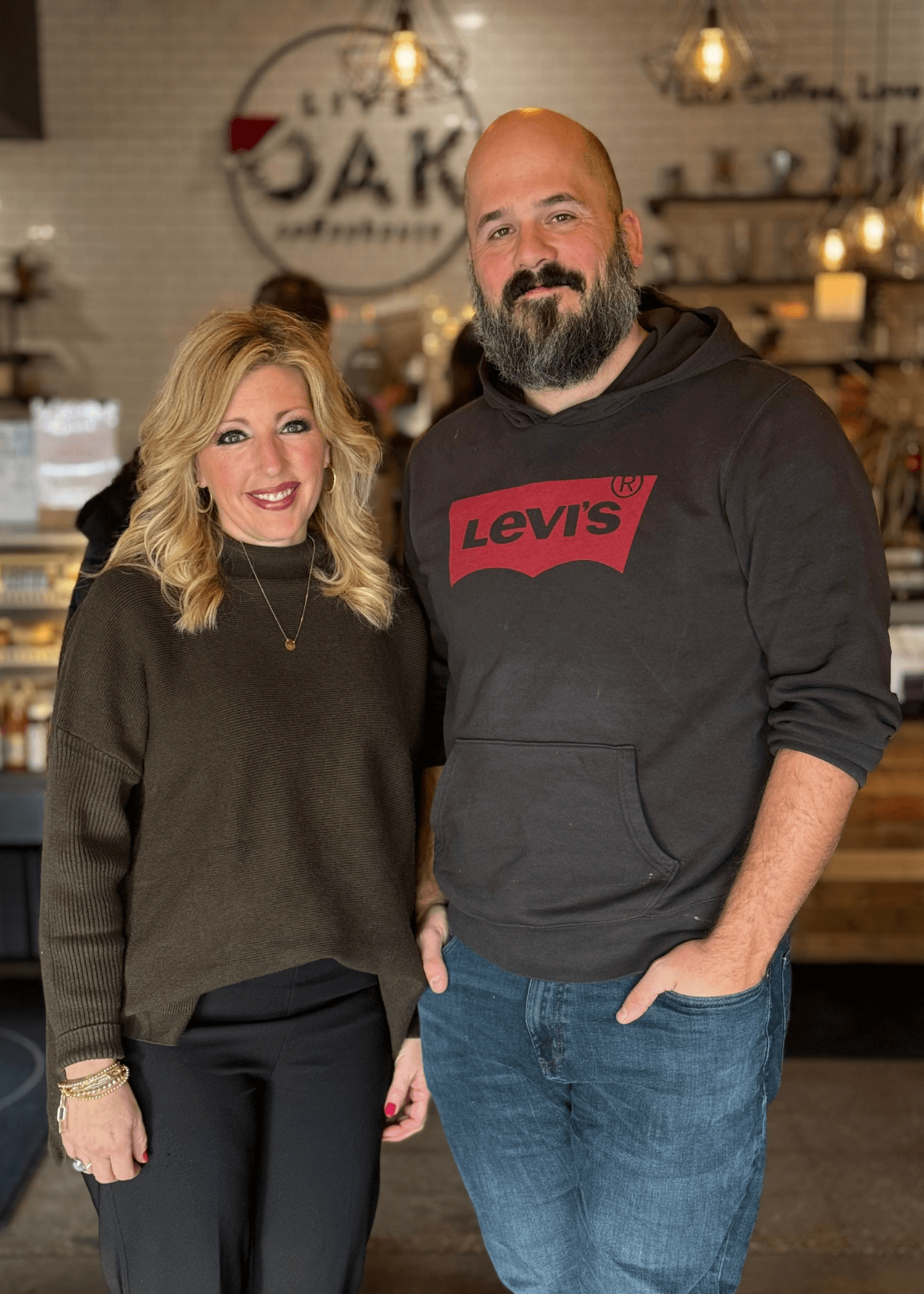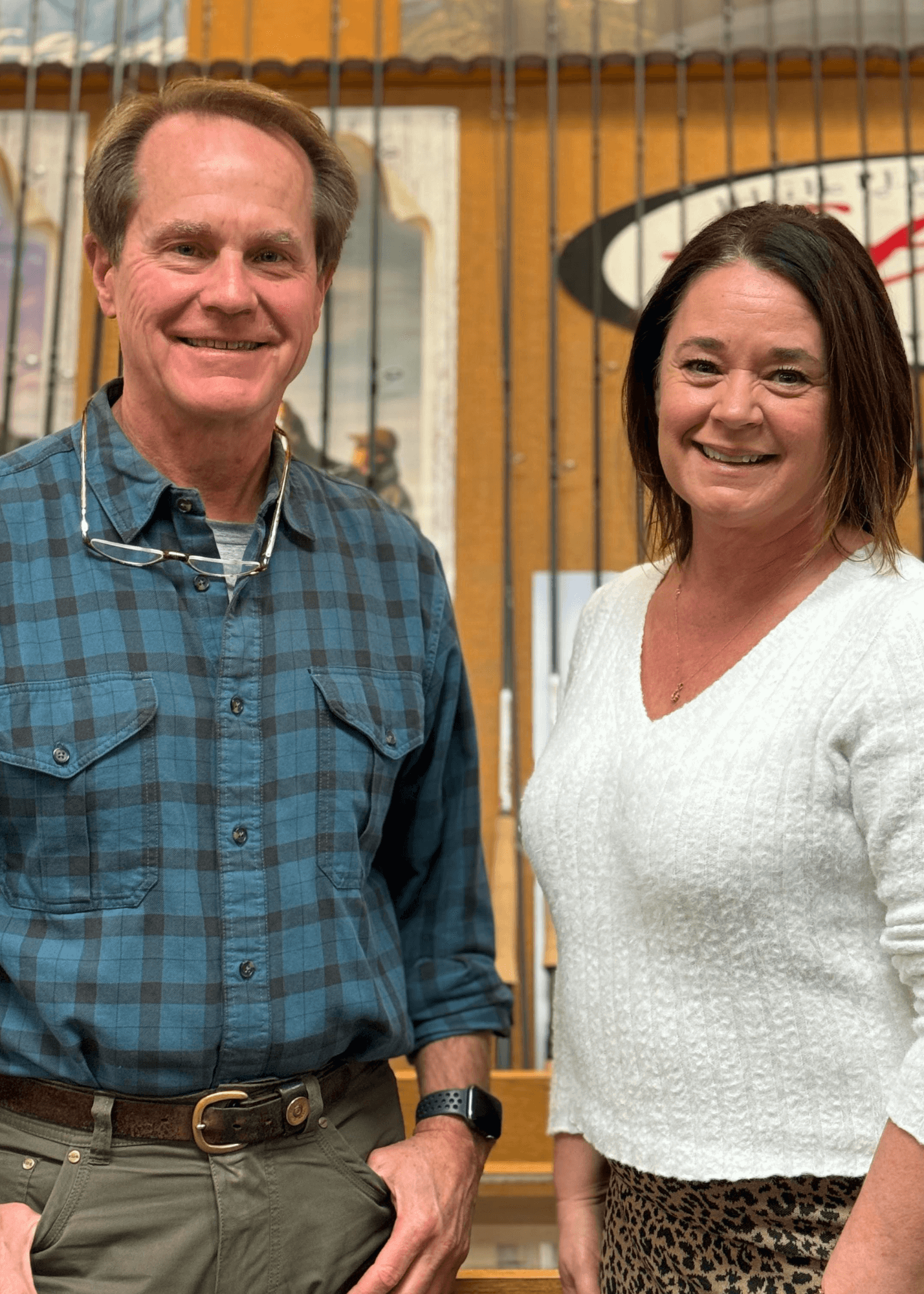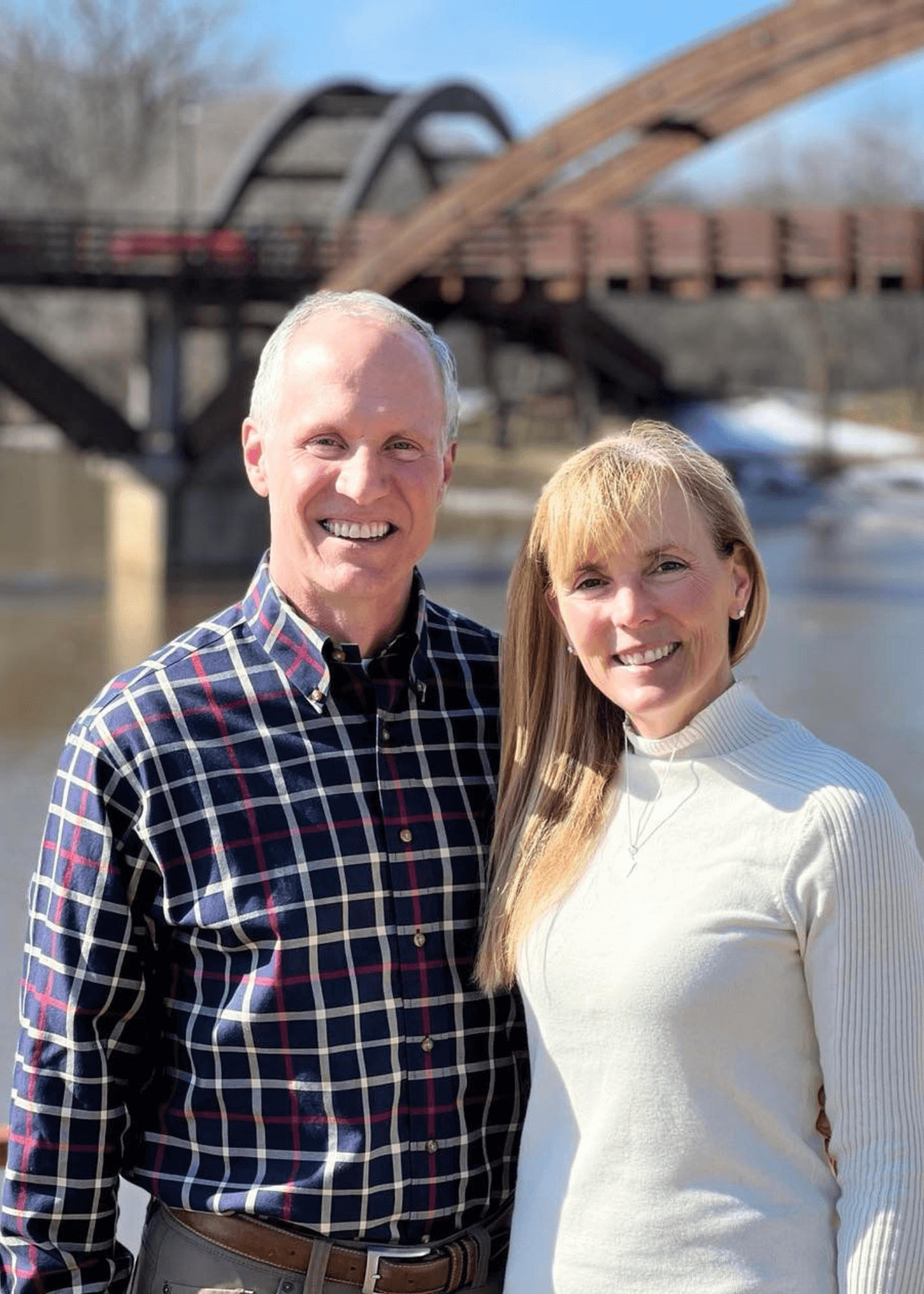“In high school, I thought I could change the world through journalism. Look at what Bob Woodward and Carl Bernstein did – they made the truth known and it made a difference! When I got to college, however, I began to understand that journalism is about saying things that have already happened. Journalism is very important and it CAN change the world, but it didn’t speak to the heart of what I wanted to do.
I came from a family where service—helping people—was important. In journalism, I felt like I was missing the boat—that I should be on the other end trying to change what happens BEFORE it happens.
My mom, before she got married, was a home missionary. She grew up in Detroit and went to Detroit Bible College. Her parents didn’t have a lot of money and said, ‘Why would you want to do that? You’re not going to be able to support yourself as a woman.’ But she saved up her money and went to Detroit Bible College because that’s what she felt she needed to do. After graduating, she traveled around and actually spent some time at a Navajo reservation out in the southwest. My first dad was a minister and was also living a life of service, but he died in a car accident when I was about four years old. My mom remarried and I gained a wonderful stepdad, I don’t know that you could have had a dad that would have loved you anymore, really. His idea of taking a day off was finding a way to serve others. He would go volunteer somewhere or at the church where we grew up: trimming trees and bushes, just doing whatever was needed.
We didn’t have a lot of money, but money was not important to my parents—life was all about service.
I did end up getting my degree in communications only because I was far enough along, but then I got a master’s degree in counseling. I initially worked as a counselor, doing community education sessions, and leading various groups, one of them being for parents going through a divorce.
Counseling is so important, but I thought, ‘What could I do that would help on a broader scale that could help people thrive better in their lives?’ I ended up running a program at an agency here in town, and then the executive director position at Shelterhouse became available. So, I went there and I ran Shelterhouse for eight years, which deals with domestic violence, sexual assault, and children’s therapy when they have been exposed to trauma.
When I got there, I realized how interconnected so many things are: housing, education, income level, financial literacy…all of it’s connected. It’s so important to have agencies that focus on single issues like those, but to really help people before they have issues, you have to think of collective impact and take more of a systems look at things if you’re really going to transform their lives.
I loved what I was doing at Shelterhouse. Then in 2012, I heard the President position at the Midland Area Community Foundation opened up. I thought, ‘I love what I’m doing and I’m very passionate about it, but if I don’t apply, I’ll always wish that I had. If the door opens, wonderful. Iff it doesn’t, that’s okay, too.’
So, I applied. I wasn’t sure what they’d want: would they want a banker? Would they want an attorney? Who are they going to want for this position?
When I got the call that the Foundation was very interested in hiring me, I remember feeling a lump in my throat. I felt tears because I was excited, but was also sad about leaving Shelterhouse.
So, it’s been a long path to this point, but I would say one big thing that’s been consistent throughout my journey is that I’ve always wanted to do something that would really make a change, both in our structure of how we do things and ultimately in an individual’s life. It’s always been important to me to do something that would change my corner of the world.
That’s always been consistent: look for roles where I could provide meaningful service.
Community foundations started a little over 100 years ago in Cleveland, Ohio. They began as organizations for everyday people to engage in philanthropy and transform the place where they live – the place they love. Community Foundations allow individuals to have a voice in philanthropy as they bring residents and donors together. For example, here at Midland Area Community Foundation, you can set up a fund for as little as $5,000 and leave a legacy. Inside a community foundation, you can leave a legacy that goes on, as we say, ‘for good, for ever, for all.’
‘For good, for ever’ has been there a long time as a community foundation slogan, but we added ‘for all’ because we think it’s really important that we realize this work is about every person, of any political belief or not, any religious beliefs or not, whatever their background, whatever their nationality, whatever their ethnic or racial background. It’s for all.
Our purpose is to cultivate the power of giving within our community, support long-term transformation and help ensure that all residents thrive. Part of the ‘how’ behind that mission is by following our values of Respect, Compassion, Integrity and Equity. Equity was a new one that we added when we went through our last strategic plan, because philanthropy has largely been the world of the privileged. That’s an issue we’re taking on while realizing and we’ll never get 100% there. I often say, ‘Always thankful, never satisfied,’ because while I’m thankful how far we’ve come, that work will never be fully accomplished. There is always more to be done.
How do we make sure that we’ve really listened to all voices? How do we make art more accessible to everybody in our community in ways they find meaningful? How do we make sure all people have access to recreation?
I love that we’re willing to say, ‘What do we need to do?’ while being willing to listen to donors and residents to figure it out. I love that we have a team, a board, and volunteers passionate about what we do and willing to come together and make the community a better place.
I’m really excited about our direction here at the Midland Area Community Foundation. We’re not just a banking institution, only saying, ‘Bring your money here and invest with us.’ Yes, it is our responsibility to steward the financial resources people have entrusted us with very seriously—and we do a darn good job of it, too!
But I’m proud of the fact that we’re so much more than that.
We’re leaning into our core values through actions like the Cultural Awareness Coalition. That’s an initiative of ours where we’re trying to make this an inclusive community where all feel a sense of belonging, and that all people feel accepted. That work has been really pivotal: it helped plan the first Juneteenth Celebration in Midland, along with hosting community conversations and training nonprofit leaders to help people answer the question ‘What does it mean to have equity in your organization?’
In partnership with the Midland Business Alliance, we’re starting some initial work around broadband accessibility. If you don’t have broadband, that’s inequity! There are big areas of Midland County that don’t have it. I don’t care what those maps that they put out say because they’re not right. We’ve got a long way to go and it’s complicated, but we want to make sure everyone ends up with access.
Another thing that we’ve done is we started what’s called a Ready for School Preschool Scholarship Fund. Those that have the resources can afford to let their children have one or two years of a high-quality preschool experience before they hit the doors of kindergarten—but what about those that can’t? Are they getting that high-quality experience that helps them succeed?
We were trying to figure out how to do that and make it sustainable. We already offer a lot of scholarships—how could we set up something for preschoolers?
So we worked with Great Start Collaborative to develop the Ready for School Preschool Scholarship Program. Parents send in their application and they get the choice of any of the participating, about nine of them. It also depends on what schools have openings, but parents get a choice. We’ve got about a million dollars in it now so it’s generating money each year, but we know it needs to grow a lot bigger than that to get where we want to be.
I’m really excited about that because to me, it’s a critical and concrete thing that will help our children. Does a kid in preschool know that that money came from us? Probably not. Does it matter? No!
Another program that we want to grow is our Midland Believes Scholarship, a scholarship for first-generation, economically-disadvantaged students from our community that helps with any post-secondary education they want to pursue. One recipient went to cosmetology school, some that have gone to traditional four-year universities, some into a skilled trades program, and some to two-year institutions.
We’re having more conversations with people who come to us saying they want to start a scholarship or honor someone that they loved. We’ll say, ‘Do you want us to share with you some of the greatest needs we’re seeing?’ Most people want to know and then that’s what they decide to do. It’s just letting them know where the need is so that we can help students, especially those that might not have access.
As the Midland Area Community Foundation moves into the next 50 years of its existence, I want us to become even more of ‘a community foundation for all’. I’d like to see us find a way to engage more voices and to find greater ways to engage with people. I’d love to see us build a greater sense of community. I’d love to see a community where all people are thriving. I’d love to see us actively working in all the major areas.
I’d also love to see us all working together. As a foundation, we rely on our community partners. We need to work with the experts in education, because that’s not us! We need experts in housing, because that is not us. The experts in the arts–that’s not us, either. But we are actively working in all those sectors and support that important work.
I think about some of the needs that our community has, like broadband, so that we are fully connected. In 10 years, I hope we’re a fully connected place where it doesn’t matter where you live, you have access to what you need. I hope we have housing for all income levels and all types in our community.
I’d like to see us be a thriving community, where we are building our livelihood, developing our talent, caring for our people, and enriching our community. I want to see us working in those four buckets where we are actively engaged for a better community. I’m not quite sure what that looks like yet, because we’re not quite there yet. It’s one of those things you just never get there—that ‘always thankful, never satisfied’ mindset.
We’ve participated in Communities of Excellence, which is a collective impact approach based on Baldrige Principles. Some of those are things like ethics and transparency, valuing people, and focusing on success and innovation. What would our community look like if we leaned into these principles? I don’t think we fully figured out a way yet, because there still are people that feel so disconnected, so we need to keep working.
Another thing I’d love to see is well-being as a priority in the community and in the region. Well-being doesn’t mean that you’re doing great all the time, but that you have what you need to ‘struggle well’. Thriving doesn’t mean that there won’t ever be challenges. There will be struggles in life. But ‘struggling well’ means we have the tools, resources, and assistance to overcome the challenges we face.”
– Sharon Mortensen, President and CEO of the Midland Area Community Foundation





